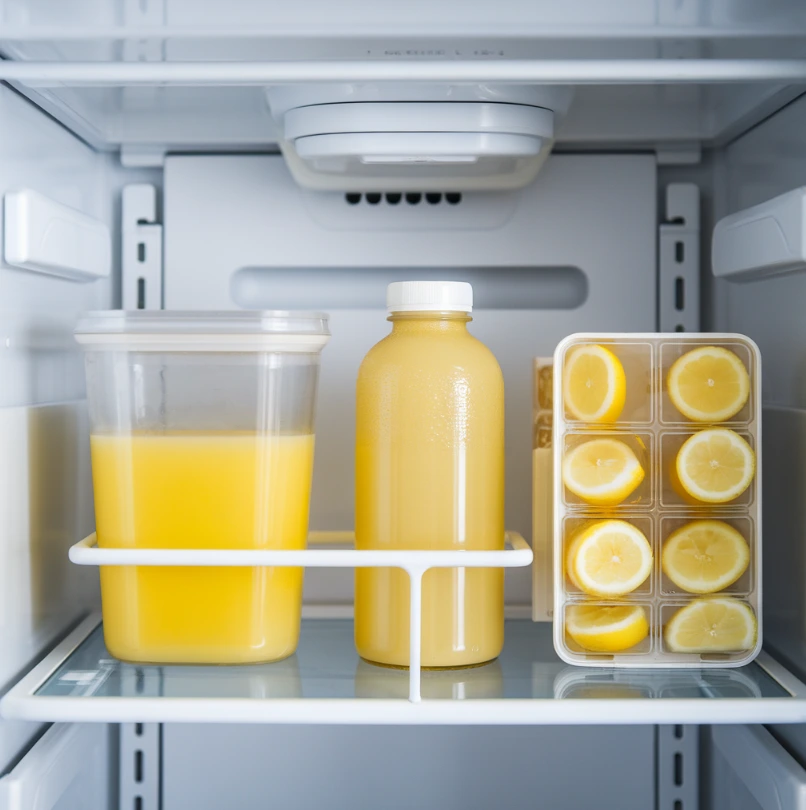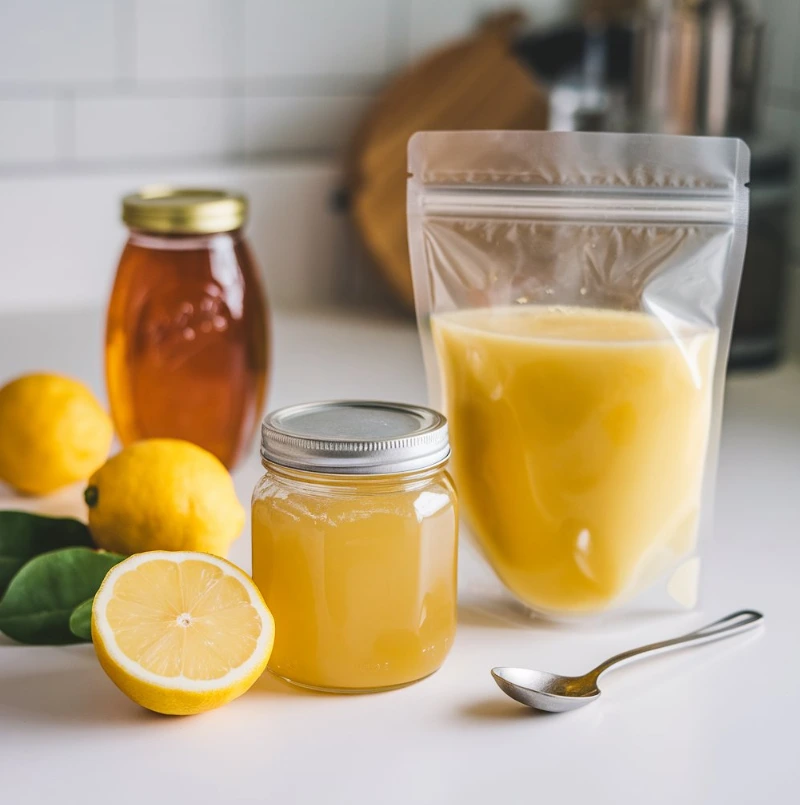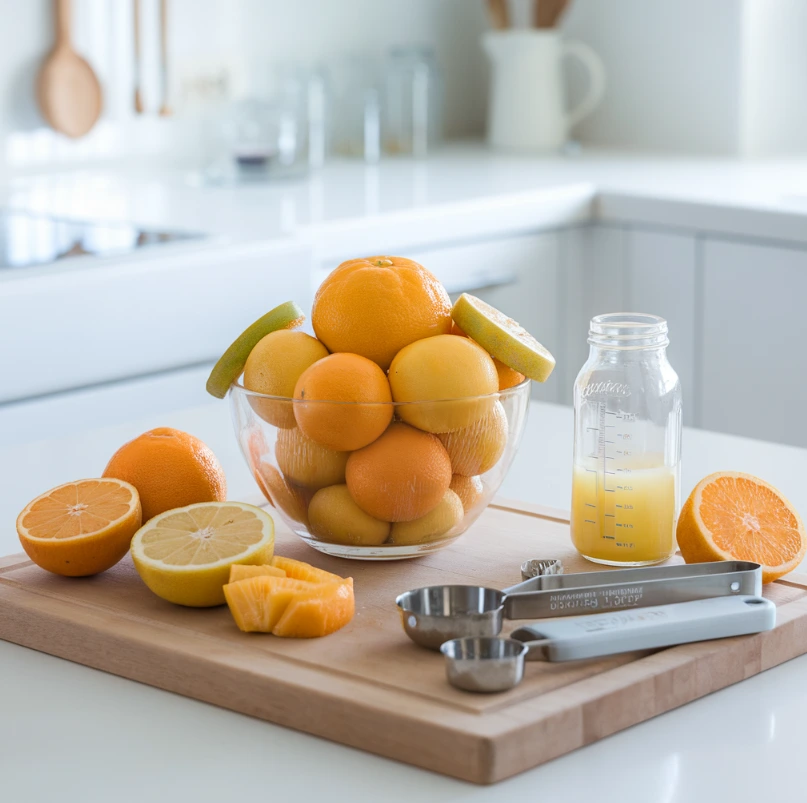The Shelf Life of Lemon Juice
Freshly Squeezed Juice:
Lemon juice is a cherished kitchen staple, lending its zesty flavor to recipes, drinks, and even household tasks. However, freshly squeezed varieties have a short shelf life due to the absence of preservatives. Proper storage is crucial for maintaining its quality and preventing spoilage. For example, freshly squeezed juice typically stays fresh for only 2–3 days when stored in the refrigerator. This limited time frame requires careful planning to use it effectively. While lemon has a natural acidity that slows spoilage, refrigeration is essential to preserve its freshness. For longer usability, freezing it in small portions can be a game-changer, preventing waste and ensuring you always have some on hand.
Commercially Bottled Juice:
Store-bought lemon juice is a convenient alternative, as it often contains preservatives that extend its shelf life significantly. As a result, unopened bottles can last between 6–12 months when stored in a cool, dry place. Once opened, proper storage becomes even more important. Keeping it refrigerated and tightly sealed can ensure its freshness for 4–6 weeks. In addition, commercially bottled juice usually includes expiration dates, offering a clear timeline for safe consumption. This type of juice is ideal for those who need a longer-lasting option without frequent trips to the store. For tips on maintaining freshness and maximizing its usability, explore resources on preserving lemon juice freshness.
By understanding these differences and practicing proper storage techniques, you can enjoy the versatility and vibrant flavor of lemon juice without worry. Whether fresh or bottled, knowing how to handle it correctly ensures you always get the best out of this indispensable ingredient.
The Shelf Life of Lemon Juice
Freshly Squeezed Juice:
Freshly squeezed citrus products have a notably short shelf life because they lack preservatives. For example, when stored in the refrigerator, they typically remain fresh for only 2–3 days. In contrast, products that are processed and packaged for longer storage have added components to extend their usability. The absence of preservatives in fresh varieties means you must use them quickly to enjoy their vibrant flavor and maximum freshness. If you’re unable to consume them within this time, consider freezing them in small portions to prevent waste.

Commercially Bottled Juice:
Bottled citrus products are designed for extended usability thanks to the inclusion of preservatives like citric acid. As a result, unopened bottles can last an impressive 6–12 months when stored in a cool, dry place. Once opened, refrigeration is essential to maintain quality. For instance, keeping the bottle tightly sealed and refrigerated can extend its usability for 4–6 weeks. These products are an excellent alternative for those who want the convenience of long-lasting ingredients without compromising too much on flavor. Moreover, they often come with expiration dates, which provide guidance for safe consumption. For more tips on storing and maximizing the usability of citrus-based ingredients, visit Does Lemon Juice Go Bad?.
Understanding these differences allows you to choose the type of product that best suits your needs, whether you prioritize freshness or convenience. Proper handling and storage are key to preserving the vibrant taste and quality of this versatile ingredient.
Factors Influencing the Longevity of Lemon Products
Storage Conditions: Storing lemon products properly is essential for maintaining their freshness. Use airtight containers to reduce air exposure. Refrigeration prevents bacterial growth and preserves quality. Moreover, freezing in small portions, like ice cubes, is a practical way to extend their shelf life.
Exposure to Heat and Light: Heat and light speed up the spoilage of lemon products. They cause discoloration and loss of flavor. Store them in a cool, dark place or the refrigerator. Even indirect sunlight can significantly shorten their shelf life.
Contamination Risks: Always use clean utensils to avoid introducing bacteria. Cross-contamination from other foods or unclean tools can accelerate spoilage. Sterile containers and tools are vital to keeping lemon products fresh.
In conclusion, proper storage, protection from heat and light, and clean tools are key to extending the shelf life of lemon products. These simple steps ensure freshness and safety for longer periods.
Recognizing Spoiled Lemon Juice
Off-Putting Odor: Fresh juice should always have a bright, citrusy aroma that reflects its freshness. However, when it develops a sour or fermented smell, this indicates it has exceeded its safe shelf life. Paying attention to scent changes is crucial for ensuring lemon juice safety and avoiding spoiled products.
Color Changes: The vibrant yellow hue of fresh juice is a reliable indicator of quality. When discoloration occurs, such as a brownish tint or cloudiness, it often signals that the shelf life of lemon juice has come to an end. In short, any noticeable change in appearance should prompt you to discard it.
Presence of Mold: Mold growth or floating particles are clear signs of spoilage. Similarly, sediment that appears unexpectedly can be a warning that the juice is no longer suitable for use. These visual changes are strong indicators that storing lemon juice properly was not sufficient to maintain its freshness.
Altered Flavor: A sharp, tangy flavor is characteristic of fresh juice. If it tastes flat, overly bitter, or off, it’s a sign that the juice has expired. In conclusion, paying attention to these sensory cues ensures lemon juice safety and helps you maximize its usability while maintaining its quality.
Understanding the factors that influence the freshness and shelf life of lemon juice can save you from culinary mishaps and ensure your favorite recipes turn out perfectly.

Smart Storage Tips for Preserving Freshness
Refrigeration for Everyday Use: Always keep citrus products refrigerated to maintain their quality and safety, whether they are freshly squeezed or opened from a bottle. Additionally, ensure the container is tightly sealed to minimize air exposure, which can lead to faster degradation. Refrigeration not only keeps the contents fresh but also preserves their vibrant flavor for longer periods, making them readily available for daily use in your favorite recipes.
Freezing for Long-Term Preservation: Freezing is an ideal method for extending the usability of citrus liquids. For example, using ice cube trays allows for perfectly portioned servings, making it convenient to add the right amount to dishes or beverages. Once frozen, transfer the cubes to a resealable freezer bag to save space and maintain freshness. This approach is particularly useful for those who want to stock up during seasonal harvests or sales.
Avoiding Room Temperature Storage: Storing citrus products at room temperature for extended periods encourages bacterial growth, which compromises both their safety and quality. As a result, the flavor may deteriorate, and the risk of spoilage increases. To avoid this, always transfer the contents to the refrigerator promptly after opening or squeezing.
Using Sterile and Clean Utensils: Clean utensils are essential when handling any perishable product. Above all, this practice prevents cross-contamination, which can introduce bacteria or other contaminants, accelerating spoilage. Ensuring cleanliness during handling helps maintain the product’s integrity and extends its shelf life, allowing you to enjoy it for longer.
In summary, proper storage techniques—like refrigeration, freezing, and using clean utensils—are crucial for maintaining the freshness and usability of citrus ingredients. These simple yet effective practices ensure that your favorite zesty flavors remain as vibrant as the day they were prepared.
Practical Uses and Tips for Extended Freshness
Create a Versatile Lemon Syrup: Combining citrus juice with sugar or honey results in a flavorful and natural preservative. This syrup can be stored in the refrigerator for weeks, making it an excellent addition to desserts, beverages, or marinades. For instance, drizzle it over pancakes or use it as a sweetener for tea, offering both convenience and a burst of flavor.
Vacuum-Sealing for Longevity: Utilizing vacuum-sealed bags is a smart way to prevent exposure to air, which is a primary cause of spoilage. Consequently, this method extends freshness significantly, making it a great option for those who like to prepare ingredients in advance. This technique works particularly well for preserving larger quantities, ensuring the liquid retains its vibrant flavor.
Enhance Stability with Vinegar: Adding a small amount of vinegar can help stabilize the acidic properties of the juice, effectively slowing down spoilage. Similarly, this approach works well for other acidic liquids and is a useful hack for extending the usability of your culinary staples. Use it to prepare tangy salad dressings or preserve the zest in your favorite dishes.
Explore Creative Citrus Hacks: There are countless innovative ways to make the most of this zesty ingredient. For example, freeze it in small portions for quick use in recipes or combine it with complementary flavors to craft unique syrups and marinades. Small adjustments like these can bring variety and ease to your cooking.
For more innovative ideas and helpful tips, explore Lemon Hacks and Tips to discover the full potential of this versatile ingredient.

Conclusion
Lemon is a beloved ingredient, cherished for its versatility in cooking, cleaning, and even skincare routines. However, it requires proper care to ensure its freshness and usability for the longest time possible. In conclusion, paying attention to how it’s stored—whether refrigerating, freezing, or using clean, airtight containers—is essential to maintain its quality and flavor. Taking these steps not only preserves its taste but also ensures it remains safe to use in all your favorite recipes.
Moreover, understanding the signs of spoilage, such as discoloration or off-putting odors, can save you from using expired juice. Whether you use it as an essential cooking ingredient, a natural remedy, or a cleaning agent, proper storage guarantees that this citrus powerhouse continues to deliver its unique zest.
For those who enjoy experimenting with lemon juice, freezing it in portions or turning it into syrup can open new possibilities. These methods are not only convenient but also help minimize waste, allowing you to enjoy its benefits for a longer time. If you’re curious about creative ways to incorporate lemon juice into your kitchen or lifestyle, exploring additional tips and recipes can spark inspiration.
For more insights and recipe ideas, visit these trusted resources:
- Tasty for diverse recipe inspiration.
- AllRecipes for creative meal ideas.
- Delish for the latest food trends.
Finally, taking the time to handle lemon juice correctly ensures its best qualities shine in every use, making it a reliable and flavorful addition to your daily life.

